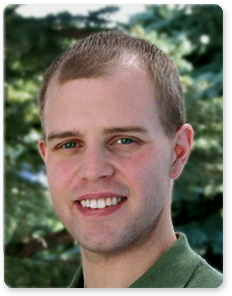Tim Haney
 |
Course: SLGY 4731 Field School in the Sociology of Disaster Spring 2013 In May 2013, a group of 12 MRU students and two faculty members traveled to New Orleans, Louisiana, to learn about recovery efforts from Hurricane Katrina (2005) and the BP/Deepwater Horizon Oil Spill (2010). While we were there, we: 1) Toured the region, seeing both devastated and non-flooded neighborhoods, the levee and flood protection system, and the wetlands surrounding the city that are receding at an alarming rate; 2) Organized and attended an academic lecture series, learning from some of the top disaster researchers in the U.S.; 3) Met with fishermen and women affected by the BP oil spill to learn about the ongoing and worsening health and economic effects of the spill on local communities; |
4) Partnered with a local non-profit, the Urban Conservancy, on their StayLocal! campaign, aimed at helping locally-owned businesses survive in lower-income and hurricane-devastated neighbourhoods. We designed and carried out a survey of local business owners to assess their needs and issues; 5) Spent our last week volunteering with Habitat for Humanity, building a house in the Lower 9th Ward, a neighbourhood that was completely devastated in Hurricane Katrina. Even today the Lower 9th Ward has only a 15 or 20% return rate, as most residents cannot afford to return and rebuild. Students learned about the sociological aspects of disaster (risk, vulnerability, evacuation, gender/race/class dynamics, and so forth) by working hand-in-hand with the future homeowners, who have been displaced from their neighbourhood for nearly eight years. Students also learned about the hard work of disaster recovery. Despite spending a week working (in 40-degree heat), we finished only the siding and painting of one house. Given that 250,000 homes were destroyed in Hurricane Katrina, students began to appreciate why the region is recovering so slowly, the importance of continued assistance, and the deep connection that New Orleanians feel to their neibghbourhoods, city, and region.
Assessment: Students in the course completed three assignments: 1) A pre-departure paper where students framed their expectations in the relevant sociological literature; 2) Extensive journaling while we were on the ground in New Orleans; 3) A final paper that asked students to connect their observations on the ground to literature and theory from their sociology courses such as Urban Sociology, Economic Sociology, Environmental Sociology, or the Sociology of Race and Ethnicity. In doing so, students were asked to reflect upon the lessons they learned about the sociological aspects of disaster, social inequalities, New Orleans and the Gulf Coast, and service-learning work.
